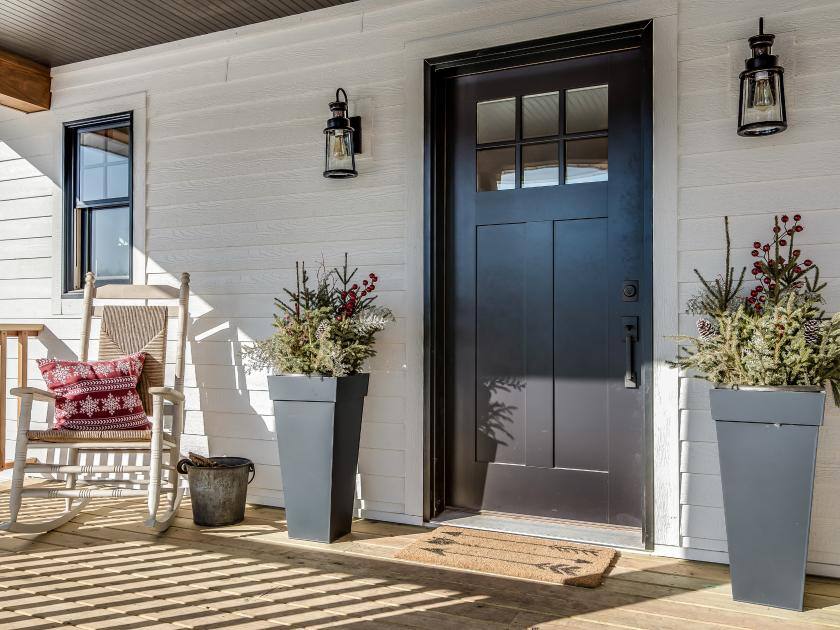Search for topics or resources
Enter your search below and hit enter or click the search icon.

If you're building a new home, you must pass a blower door test. But what does a blower door test actually measure? What will it take for your new house to get a passing score?
South Central Services offers certified blower door testing in and around Chambersburg, Pennsylvania. According to the International Energy Conservation Code (IECC), new construction homes must pass a blower door test.
By the end of this article, you'll know:
The IECC is responsible for outlining expectations for energy-efficient construction. One of the critical areas where homes are wasting energy is through air leakage.
If air can randomly exchange through gaps and cracks in your thermal envelope, then:
Not only can air leakage make a home quite uncomfortable, but it also drives up energy costs.
A blower door test can quantify the amount of air leakage in a home. The number of air changes per hour (ACH) is defined. When compared to the standards for a modern air-sealed home, the blower door test determines if there is leakage that needs to be addressed.
The IECC doesn't just require that a blower door test is performed, but that the home receives a passing score. Blower door testing is not a formality or a box to be checked off of a list. The blower door test is a tool to ensure good energy performance in that home for the foreseeable future.

When it comes to blower door testing, you want a low score. The fewer air changes per hour (ACH) in the home, the better.
So, what exactly is a passing score? The threshold varies by climate zone.
For Climate Zones 1 and 2, scores must be at or below 5 ACH. For Climate Zones 3 through 8, scores must be at or below 3 ACH.
Our team works primarily in Climate Zone 5, which means we look for a score of 3 or below when conducting a blower door test.
As long as your home does not have significant air leakage, it should score within the threshold and pass the test. The score is a direct and mathematical reflection of air leaks in your home.
Your home might not pass a blower door test on the first try. All is not lost! The blower door test technician will discuss your options for air-sealing and resolving air leakage. After you have sealed the air leaks, you can have another blower door test.
The best time to prepare for a blower door test is during the construction phase. While your home is under construction, it is much easier to seal up air leaks. Once your home is built, your access to certain areas of the home is limited.
.jpg?width=533&height=400&name=New%20Construction%20Sharpsburg%20Maryland%20(5).jpg)
If your home is properly air-sealed during construction, you shouldn't have to worry about passing a blower door test once the home is finished. If air leakage wasn't addressed during construction, it will be difficult to access areas in the home that are leaking.
If you're building a new construction home, you will have to pass a blower door test. If you live in the far south of the United States, your climate zone is like Climate Zone 1 or 2. Your home would need a score of 5 ACH or less to pass. Most other areas of the U.S., including Pennsylvania, fall within Climate Zones 3 through 8. These locations need a score of 3 ACH or less to pass.
If you don't pass the blower door test on the first try, you will have to try again after making necessary changes to the house's thermal envelope.
Now that you understand how passing a blower door test works, your next step is to:
Disclaimer: While we strive to publish information accurate to building science, local building codes and standards supersede our recommendations.
Kilian has co-owned and operated South Central Services for 8 years. He is passionate about community involvement. In his spare time, he enjoys being with his family, playing ice hockey, and going fishing with friends.
Topics: